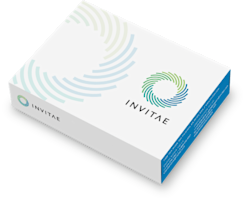
Invitae Hereditary Cerebral Small Vessel Disease Panel
Test code: 53701 •
Test description
The Invitae Hereditary Cerebral Small Vessel Disease Panel analyzes genes that are associated with hereditary forms of cerebral small vessel disease, encompassing conditions affecting the small arteries, arterioles, venules, and capillaries of the brain. The genetic heterogeneity associated with these conditions can make it difficult to use phenotype as the sole criterion to select a definitive cause. These genes were curated based on the available evidence to provide analysis for cerebral small vessel disease. Given the clinical overlap of cerebral small vessel disease, broad panel testing allows for an efficient evaluation of several potential genes based on a single clinical indication. Some genes in this test may also be associated with additional unrelated disorders, that are not included in the list of disorders tested. Genetic testing of these genes may help confirm a clinical diagnosis, predict disease prognosis and progression, facilitate early detection of symptoms, inform family planning and genetic counseling, or promote enrollment in clinical trials.
Stroke can present as a clinical feature in many monogenic disorders; however, the current panel focuses on monogenic disorders that result in cerebral small vessel disease. The current panel does not include genes that are associated with large artery disease, prothrombotic states, embolic strokes, cerebrovascular malformations, or mitochondrial disorders that present with stroke-like episodes.
Please note that certain genes on this panel are associated with high risk of neurodegenerative conditions, including dementia, for which there is currently no known treatment or cure. Ordering the Cerebral Small Vessel Disease Panel is thus not recommended for individuals under the age of 18 who have no personal history of stroke or neurodegenerative disease.
Ordering information
Turnaround time:
10–21 calendar days (14 days on average)New York approved:
YesPreferred specimen:
3mL whole blood in a purple-top EDTA tube (K2EDTA or K3EDTA)Alternate specimens:
Saliva, buccal swab, and gDNA are also accepted.Learn more about specimen requirementsRequest a specimen collection kitClinical description
To view the complete clinical description of this panel, click here.
Assay information
Invitae is a College of American Pathologists (CAP)-accredited and Clinical Laboratory Improvement Amendments (CLIA)-certified clinical diagnostic laboratory performing full-gene sequencing and deletion/duplication analysis using next-generation sequencing technology (NGS).
Our sequence analysis covers clinically important regions of each gene, including coding exons and 10 to 20 base pairs of adjacent intronic sequence on either side of the coding exons in the transcript listed below, depending on the specific gene or test. In addition, the analysis covers select non-coding variants. Any variants that fall outside these regions are not analyzed. Any limitations in the analysis of these genes will be listed on the report. Contact client services with any questions.
Based on validation study results, this assay achieves >99% analytical sensitivity and specificity for single nucleotide variants, insertions and deletions <15bp in length, and exon-level deletions and duplications. Invitae's methods also detect insertions and deletions larger than 15bp but smaller than a full exon but sensitivity for these may be marginally reduced. Invitae’s deletion/duplication analysis determines copy number at a single exon resolution at virtually all targeted exons. However, in rare situations, single-exon copy number events may not be analyzed due to inherent sequence properties or isolated reduction in data quality. Certain types of variants, such as structural rearrangements (e.g. inversions, gene conversion events, translocations, etc.) or variants embedded in sequence with complex architecture (e.g. short tandem repeats or segmental duplications), may not be detected. Additionally, it may not be possible to fully resolve certain details about variants, such as mosaicism, phasing, or mapping ambiguity. Unless explicitly guaranteed, sequence changes in the promoter, non-coding exons, and other non-coding regions are not covered by this assay. Please consult the test definition on our website for details regarding regions or types of variants that are covered or excluded for this test. This report reflects the analysis of an extracted genomic DNA sample. In very rare cases, (circulating hematolymphoid neoplasm, bone marrow transplant, recent blood transfusion) the analyzed DNA may not represent the patient's constitutional genome.
You can customize this test by clicking genes to remove them.
Primary panel
Question about billing?
Find answers